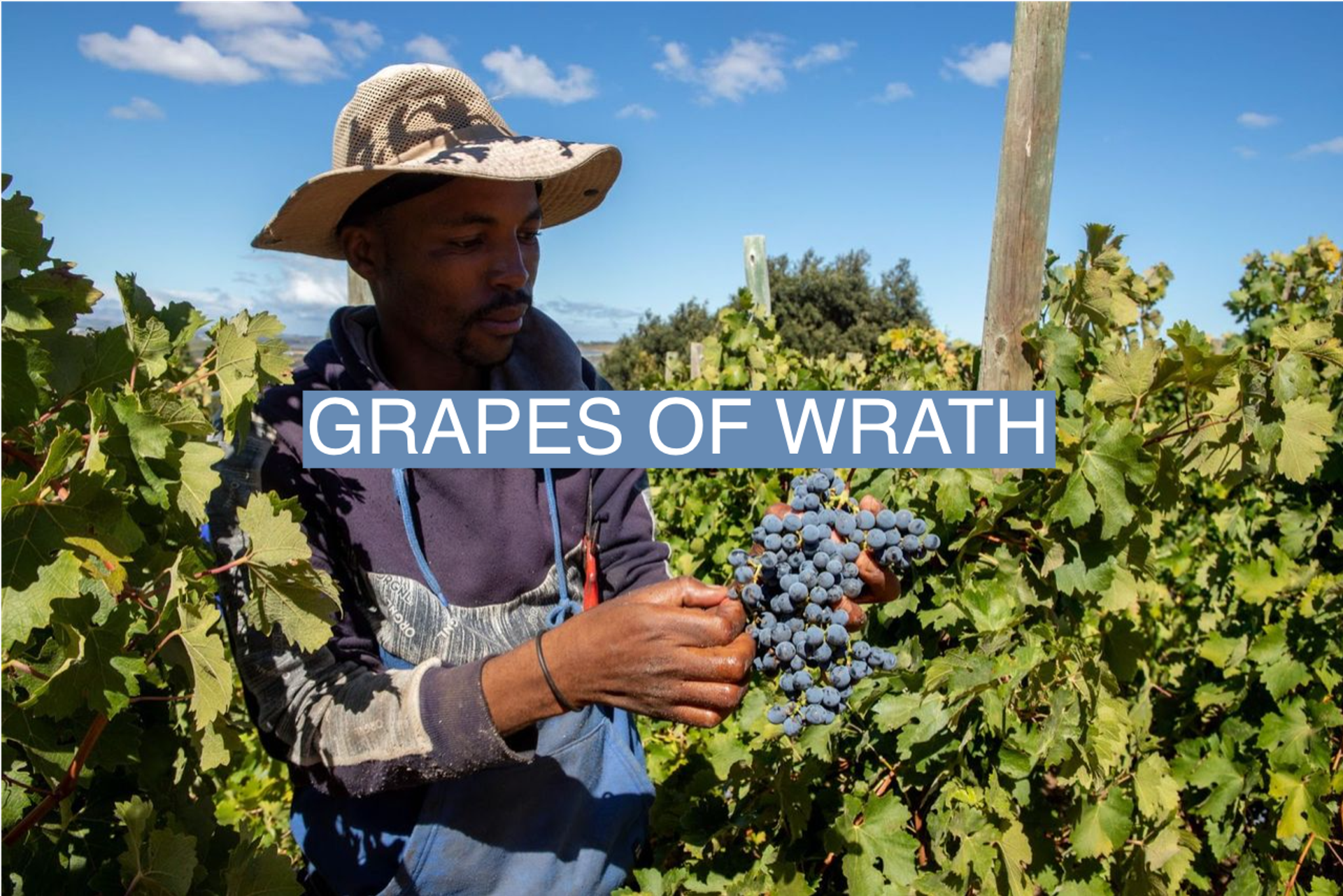The Scoop
JOHANNESBURG — Israeli companies have canceled the importation of grapes from South Africa, according to three people with direct knowledge. It is prompting fears the African nation’s businesses may face a broader boycott due to Pretoria’s stance over the conflict in Gaza.
South Africa took Israel to the UN’s International Court of Justice (ICJ) earlier this month over accusations that Israel is committing genocide against Palestinians. The court subsequently ordered Israel to do all it could to prevent acts of genocide in Gaza.
The Congress of South African Trade Unions (COSATU), South Africa’s biggest trade union group, called on the country’s government to protect its workforce from the impact of any trade dispute with Israel. “We need to ensure no South African worker loses their job,” said its spokesman, Matthew Parks, while also calling for the international community to impose sanctions on Israel.
It was important that South Africa’s trade department and other official bodies “provide support and assistance” to any company which “faces a boycott from Israel,” he told Semafor Africa.
In this article:
Know More
Coal and diamonds are the most valuable South African exports to Israel. Some 53% of the nation’s coal was sent there in 2022 and a quarter of its diamonds.
South Africa has long criticized Israel and drawn parallels with its own history under the apartheid regime. It recalled its diplomats from Tel Aviv in November in response to Israel’s military operation in Gaza. Parliament later voted in favor of a motion calling for the closure of Israel’s embassy in Pretoria and the suspension of diplomatic ties — following pressure from within the country’s ruling party, as reported by Semafor Africa prior to the vote.
Sam’s view
South Africa will see any trade boycott from Israel as expected collateral damage. Pretoria may also, justifiably, feel there is a bigger market for its agricultural products because Israel is 48th on its list of export partners. And just 4% of South African grape exports go to Israel. The bigger fear is any effect a trade spat with Israel could have on trade relations with the United States, the country’s long standing ally.
The threat of placing further strain on its relationship with the U.S. will worry the South African government after it took considerable diplomatic effort to improve relations last year after Washington’s ambassador accused Pretoria of trading arms with Russia — a matter South African government investigators told me could have been traced to a private company, even though an inquiry with a limited scope later found no evidence of an arms shipment.
Washington has several levers it can use against South Africa if it chose to join Israel in imposing restricting imports, including AGOA, its preferential trade platform that allows about 7,000 products to enter the U.S. market duty-free. But suspending South Africa’s access to AGOA would be equivalent to the U.S. cutting off its nose to spite its face because it needs South African minerals, making that option unlikely. It would also punish U.S. manufacturers like Ford, which makes cars from South Africa.
Despite the reality that the U.S. is unlikely to do anything drastic, people I’ve spoken to at the highest levels of government and trade unions fear that the political opposition to Israel, having already spilled over into the courtroom, could further spread to boardrooms and supermarket shelves.
Room for Disagreement
David Mackay, a director at Pretoria-based research house XA Global Trade Advisors, said the consequences of South Africa’s stance on the Gaza conflict could go beyond issues around imports and exports if the U.S. were to react. “There was a lot more than just trade that came from the U.S. to Africa, including donor funds,” he said.
He also stressed the need to look beyond Washington. He said the impact on relations with the European Union — should also be considered. “Relations between South Africa with both the U.S. and EU have deteriorated since Russia invaded Ukraine,” he said. “Consequences can be extremely serious when the trade partners take a harsh view of us.”
Notable
- South Africa should be truly non-aligned and stop risking its “vital trade ties with the West,” argues industrialist Ivor Ichikowitz in Fortune magazine.
